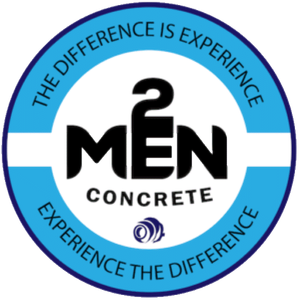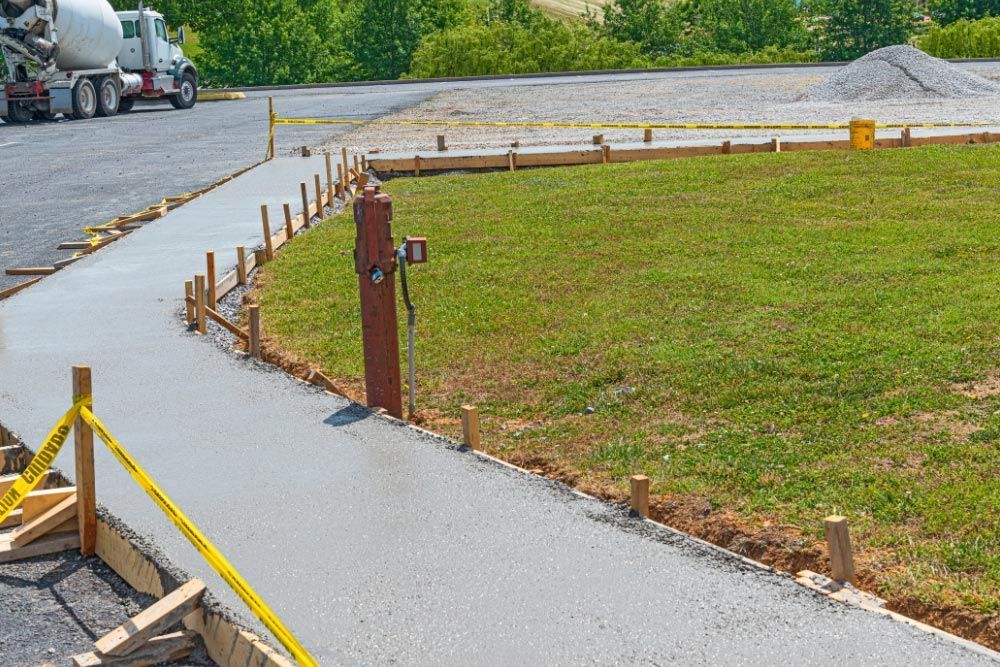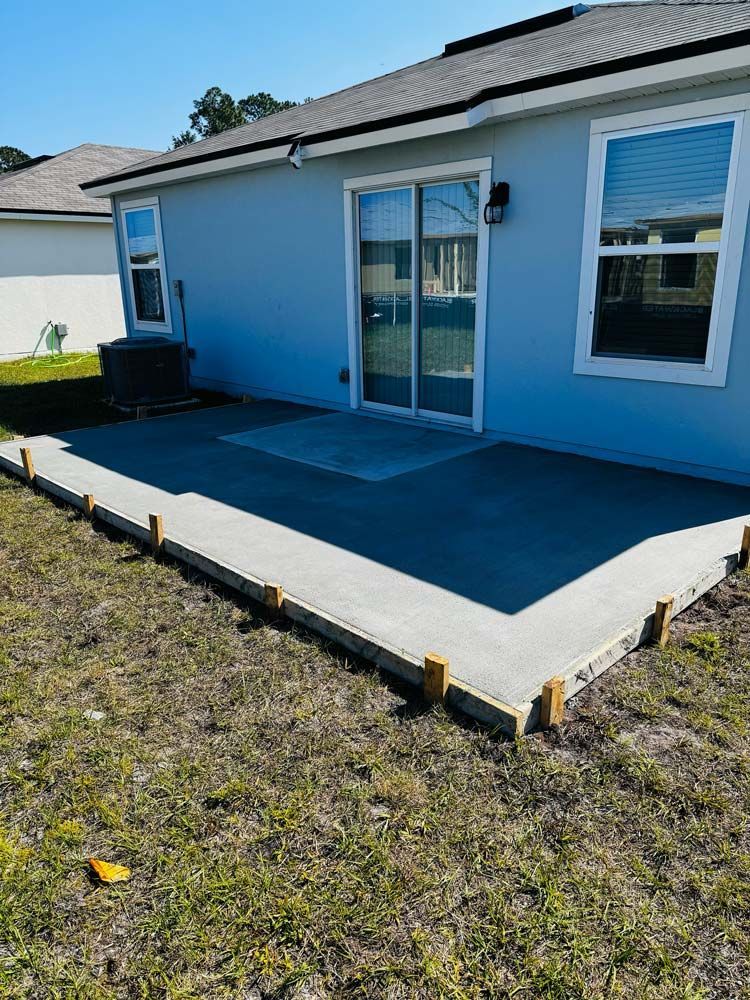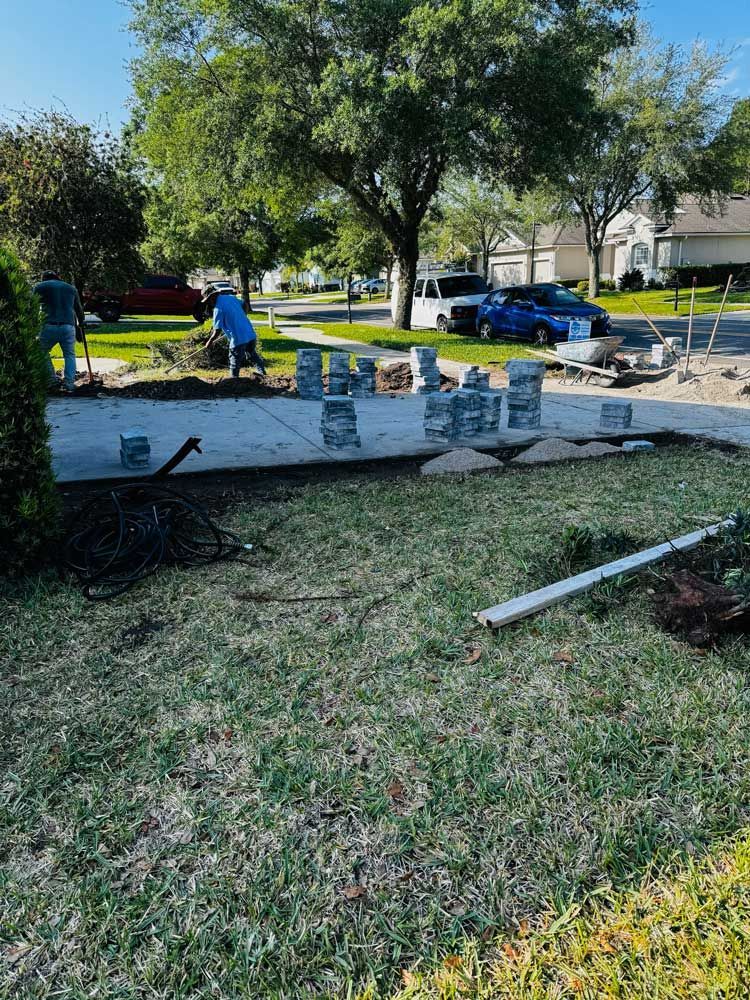How Much Does Paver Installation Cost in 2025? Complete Guide
Paver installation has become a go-to choice for homeowners who want to transform their outdoor spaces into attractive, durable, and functional areas. From driveways and patios to walkways and pool decks, pavers offer a versatile and stylish alternative to traditional concrete or asphalt surfaces. With a wide variety of materials, colors, and patterns available, pavers can enhance the curb appeal of any property while providing long-lasting performance.
If you’re planning a paver project in 2025, having a clear understanding of the costs involved is crucial. Installation expenses can vary widely based on materials, project size, design complexity, and local labor rates. Being informed ahead of time helps homeowners budget effectively, avoid surprises, and make decisions that maximize both aesthetic appeal and long-term value.
This comprehensive guide will walk you through the typical paver installation costs, key factors that influence pricing, and practical tips to ensure you get the best return on your investment for your home improvement project.
Average Cost of Paver Installation in 2025
The cost of paver installation can vary widely depending on materials, labor, site conditions, and project size. A typical 300 sq. ft. patio or walkway can cost anywhere from $2,400 to $10,500 depending on materials and complexity. Here’s a breakdown of average prices in 2025:
| Type of Paver | Average Cost per Sq. Ft. | Notes |
|---|---|---|
| Concrete Pavers | $8 – $15 | Most budget-friendly, durable, easy to maintain |
| Brick Pavers | $10 – $25 | Classic look, high durability, slightly higher labor cost |
| Natural Stone Pavers | $15 – $30 | Elegant and long-lasting, but more expensive to install |
| Porcelain Pavers | $20 – $35 | Modern, low-maintenance, requires professional installation |
Factors That Affect Paver Installation Costs
Several factors influence the final price of a paver project:
- Material Type: Natural stone and porcelain are more expensive than concrete or brick.
- Project Size: Larger areas reduce cost per square foot but increase total material and labor costs.
- Design Complexity: Intricate patterns, curves, or custom borders add labor time and cost.
- Site Preparation: Grading, excavation, and removal of existing surfaces increase costs.
- Base Material: A strong base of gravel and sand is essential for durability, which can add $2–$5 per sq. ft.
- Labor Rates: Labor costs vary by region; urban areas often charge more than rural locations.
- Additional Features: Edging, lighting, drainage systems, or sealers add to the total investment.
Maintenance Costs and Longevity
Pavers are durable and long-lasting, making them a smart choice for driveways, patios, walkways, and pool decks. With proper care, a paver installation can last 20–30 years or more.
Maintenance Costs:
- Sealing: Protects against stains and fading. Costs $0.50–$2 per sq. ft. every 2–3 years.
- Cleaning: Sweep regularly; occasional power washing may cost $100–$300.
- Repairs: Replace damaged pavers for $5–$25 each or re-level sections for $300–$700.
Factors Affecting Longevity:
- Material quality: High-quality concrete, brick, or stone lasts longer.
- Installation: Proper base and drainage extend life.
- Climate: Extreme weather or heavy rain may cause shifting or settling.
- Usage: Heavy-traffic driveways may need more maintenance than patios or walkways.
DIY vs Professional Installation
When it comes to paver installation, homeowners can choose between doing it themselves or hiring a professional. Each option has different costs, time requirements, and long-term benefits.
| Feature | DIY Installation | Professional Installation |
|---|---|---|
| Cost | Lower upfront cost; only materials and tools ($5–$20 per sq. ft.) | Higher upfront cost; includes labor ($15–$35 per sq. ft.) |
| Time | Longer; can take several days or weeks depending on experience | Faster; professionals complete most projects in 1–3 days |
| Skill Level | Requires moderate skill; mistakes can be costly | Skilled labor ensures proper installation, leveling, and drainage |
| Tools & Equipment | Must rent or buy compactor, saw, and other tools | All tools and equipment provided by the contractor |
| Quality & Durability | Risk of uneven surfaces, poor drainage, or shifting pavers | Guaranteed quality, proper base, and long-lasting results |
| Warranty | None; you are responsible for repairs | Often includes warranty for materials and workmanship |
| Maintenance | Same as professional installation, but may require more repairs if done incorrectly | Proper installation reduces long-term maintenance needs |
| Design Options | Limited by skill and available tools | Full design flexibility with patterns, colors, and custom shapes |
Tips to Reduce Paver Installation Costs
- Compare Quotes: Get multiple estimates from local paver installers to find the best price.
- Choose Cost-Effective Materials: Concrete pavers are durable and budget-friendly.
- Keep Designs Simple: Avoid complex patterns or borders to save on labor and materials.
- Plan Ahead: Proper site preparation prevents future repairs and extra costs.
- Consider Seasonal Discounts: Many installers offer lower rates during off-peak months.
Final Thoughts
Paver installation is an investment in your home’s aesthetics, functionality, and long-term value. In 2025, costs can range from $8 to $35 per sq. ft., depending on material and complexity. By understanding the factors that influence pricing and maintaining your pavers properly, you can enjoy a durable, attractive outdoor space for years to come.
Whether you’re building a new patio, driveway, or walkway, planning your project carefully and working with trusted local professionals will ensure a smooth installation and lasting results.
Frequently Asked Questions
How much does paver installation cost in 2025?
Paver costs vary by material, design, and project size. On average, expect $15–$35 per square foot for professional installation, including labor and materials. Concrete pavers are generally the most budget-friendly option.
How long do pavers last?
With proper installation and maintenance, pavers can last 20–30 years or more. Durability depends on material quality, climate, and how well the base is prepared.
Can I install pavers myself?
Yes, DIY installation is possible for small patios or walkways, but it requires proper tools, skill, and patience. Mistakes in leveling or base preparation can lead to shifting or uneven surfaces.
Do pavers require maintenance?
Yes, routine maintenance includes sweeping, occasional power washing, and sealing every 2–3 years. Individual pavers can be replaced if damaged without replacing the entire surface.
Are pavers better than concrete or asphalt?
Pavers offer more design flexibility, durability, and aesthetic appeal. They are also easier to repair compared to poured concrete or asphalt, which may crack over time.
How long does professional installation take?
Most residential projects, like driveways or patios, can be completed in 1–3 days, depending on size and complexity. Proper base preparation and drainage are key to a lasting installation.
Can I customize the design and color of my pavers?
Absolutely. Pavers come in various colors, shapes, and patterns, allowing homeowners to create unique designs that match their landscape and style preferences.



